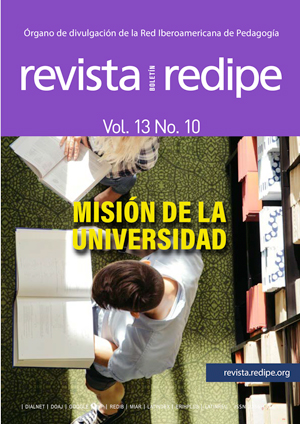Conscious education in the progressive agenda the colombian case
Main Article Content
Keywords
Progressivism, Internal ethics, Political project, Edifying change, Conscious education, Otrich
Abstract
The purpose of this reflective-generative exhibition is to project certain lights so that the agendas, projects and political programs in development or prior to their implementation, especially those of a progressive and related nature, in their educational lines, in particular, are , as well as the reactions that they awaken for and/or against, (re)thought in order to assume with edifying conscience their actions and their permanent (re)construction. It is about feeling the political agendas and the criticisms that seek to nourish or diminish them, so that as much as possible they gain luminosity, and promote a more conscious education; In any case, so that education and politics are given new meaning. One of the great debts of politics, and of course of education, is that each time they move away from the primary mission that imposes on them to generate scenarios to flow with intertwined life, let us be worthy inhabitants of the common home, proximal, welcoming of the another human and the other non-human.
References
Andaluz, A.M.): Del deber moral a la acción humanizadora: Kant y Levinas:DialnetDelDeberMoralALaAccionHumanizador aKantYLevinas-7750287.pdf.
Arboleda, J.C. De las prácticas formativas interónomas. Revista Boletín Redipe 13/09: https://revista.redipe.org/index. php/1/article/view/2160 Hacia una didáctica comprensivo edificadora: Revist Boletín Redipe: https://revista.redipe.org/index.php/1/article/ view/1218
Duque D., J (2024) Inquietudes relevantes sobre la democracia: J. Han, Byung-Chul. (2022). Infocracia. La digitalización y la crisis de la democracia. Penguin Random House.
Gonzalez, J.-Figueroa, C. 2021, La geopolítica del progresismo latinoamericano y el voluntarismo de sus críticos de izquierda. Pap. trab. - Cent. Estud. Interdiscip. Etnolingüíst. Antropol. Soc. [online]. 2021, n.42 [citado 2024-09-26], pp.88-111. Disponible en: https://www.scielo.org.ar/scielo. php?script=sci_arttext&pid=S1852- 45082021000200088&lng=es&nrm=iso
Heidegger, M. (2011, pag 163), La historia del ser. El hilo de Ariadna,Biblioteca Internacional Martin Heidegger, Buenos Aires.
Maldonado, A. (2022). La teoría del progresismo de Gustavo Petro. Corporación latinoamericana Sur. https://www.sur. org.co/la-teoria-del-progresismo-degustavo-petro/?pdf=16220
De Sousa S., B. (2024). Tecno-fascismo, Tecnoterrorismo y guerra global. Revista Sur. https://www.sur.org.co/tecno-fascismotecno-terrorismo-y-guerra-global/
Godin, R. (2024) Alemania: conservadurismo de izquierdas por encima de todo conservadurismo . Sin permiso, Revista electrónica: https://sinpermiso.info/ textos/alemania-conservadurismode-izquierdas-por-encima-de-todoconservadurismo
Lévinas, E. (1977). Totalidad e infinito. Salamanca: Sígueme.
Ortega R. Pedro (2024). La huella del otro. Editorial Redipe. Misión de la universidad. Boletín Redipe, 13/10: https://revista.redipe.org/index.php/1/article/ view/2173
Ruiz, don Miguel (2017). La Maestría del Ser: el camino tolteca hacia la libertad personal. Urano, pag 15. https://editorial.redipe. org/index.php/1/catalog/book/177
Tenreiro R., V.: Creer en el Otro: La motivación moral a partir de Kant y Levinas, Valencia, Ápeiron Ediciones, 2017, 437 pp. ISBN: 978-84- 17182-51-9. p. 56.



